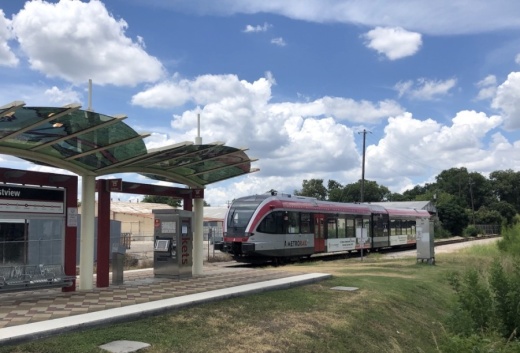This is not a bond election because voters are not authorizing the city to take out a loan, as they did in 2016 and 2018 and could again in 2020 with Proposition B to fund sidewalks, bicycle lane, roadway and other transportation improvements. Instead, voters are deciding whether to allow the city to raise enough property tax revenue to fund the local portion of the project, estimated at $3.85 billion of the $7.1 billion investment.
The rest of the money for the project, according to Capital Metro, is projected to come from matching federal funds. The public transit agency based those projections on similar projects in other cities. In September, the Federal Transit Administration announced a $929 million grant for the $2 billion Southwest Light Rail Transit Project in Minneapolis.
As early voting opened Oct. 13 and Election Day approaches on Nov. 3, the amount of the tax increase has been shown differently depending on the perspective of the group reporting the numbers. Project Connect would add 8.75 cents to the city's property tax rate, increasing it from the 44.6 cents per $100 of valuation approved in August to 53.35 cents per $100 of valuation—or about 19.6%.
But tax rates are only part of the equation for homeowners in Austin when they receive their bill. The value of their home also affects how much they pay—and the city is only one of the government entities that collects taxes. Here is the full picture of the Project Connect decision:
TAX RATES
There are five main governmental organizations that homeowners fund in Travis County with their property taxes, each of which sets a tax rate every year. Capital Metro is not one of those five taxing entities—it does not collect property taxes, but rather funds most of its budget with a 1% sales tax levied in the area it serves.The $7.1 billion Project Connect expansion would occur entirely within the city of Austin. If voters approve, the city would collect the property taxes, then the project would be governed by a joint body with representation from both the city and Capital Metro.
Among the main taxing entities in Austin, rates have mostly stayed flat over the last five years, with the exception of the proposed increase for the city of Austin to fund Project Connect and Austin ISD. Due to a 2019 bill passed by the Texas Legislature that changed the funding formula for Texas school districts, AISD's tax rate dropped by 8.93 cents per $100 of valuation between fiscal year 2017-18 and FY 2020-21.
HOME VALUES
While tax rates have stayed relatively similar in five years in Austin, home values have increased drastically due to high demand for real estate as the city has grown.That increase in value is a good thing for homeowners when it comes to building wealth and potentially selling their property. However, it also means their tax bills are rising consistently from year to year, and that has the potential to drive residents out of their homes if the property tax payments become unmanageable.
TAX BILLS
Residents can find their annual tax bill by multiplying the value of their home by the tax rates of each entity they pay. Here's what the property tax bill for the upcoming fiscal year will look like for the median Austin property owner compared to prior years.PROJECT CONNECT IMPACT
Finally, to see the impact of Project Connect, the chart below separates the revenue that would be dedicated to the transportation plan from the rest of the property tax payments Austin residents will make in FY 2020-21. The median homeowner in Austin will pay $316.98 toward Project Connect if Austin voters pass the resolution in November.That figure is 16.4% of the homeowner's city tax bill and 3.93% of their overall tax bill. The city tax bill for FY 2020-21 for the median homeowner—including both what council passed in August and the Project Connect addition—would be 23.5% higher than it was last year.





